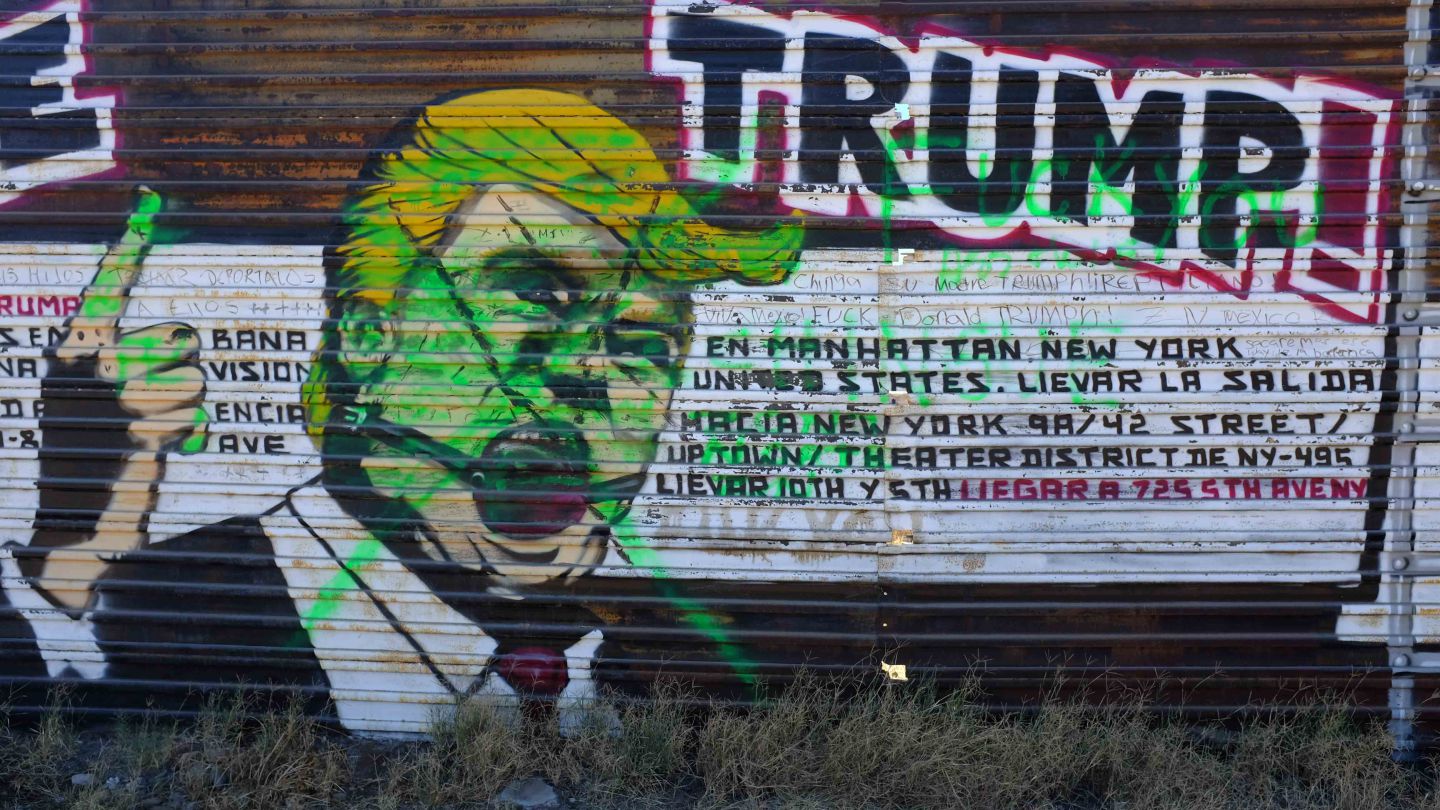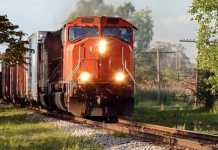Looking out the window of his seventh floor office at the rolling expanse of houses, highways and factories, Mexican business consultant Fernando Arjona watches the endless stream of trucks heading towards the U.S. border. It’s part of the fleet of 3,000 trucks that cross from Tijuana into San Diego every day, ferrying billions of dollars in Mexican exports.
The area around Arjona’s office is packed with factory buildings the size of football fields, part of a massive complex known as Industrial City. It’s home to a growing number of major manufacturing companies and continues to attract a new wave of investment following the 2008 recession caused by the U.S. financial crisis.
“We haven’t seen a boom like this since 2007. We’re at 2% vacancy,” Arjona tells me.
Tijuana is one of Mexico’s biggest economic success stories, thanks in large part to cross-border commercial ties established under the North American Free-Trade Agreement (NAFTA). So one might reasonably expect that Donald Trump’s angry shouting about NAFTA would be cause for concern among Tijuana exporters these days. Trump has called the trade deal a job-sucker, “one of the worst deals ever” and something his administration would “terminate” to “bring our jobs back” and punish companies that outsource to Mexico.
But Trump’s saber-rattling hasn’t put a damper on cross-border business in Tijuana. If anything, it’s growing faster than ever.
During the first six months of 2016, the manufacturing sector in Baja California, the state where Tijuana is located, received $571 million in manufacturing investment, up nearly 50% from the same period last year. That’s the second highest six-month investment total in the state’s history, and puts Baja California on pace to match or exceed its previous single year manufacturing investment record of $1.1 billion, set in 2013.
“The realities of economic decisions between the two countries, especially in the border region, operates separately from political rhetoric these days. There is a long-term trend of businesses discovering Baja California as a place with an increasingly educated workforce, a good quality of life, and solid infrastructure ties to the US, that is making it increasingly attractive to investors and a good option for cross-border manufacturing,” says Andrew Sellee, a Mexico scholar at the Woodrow Wilson Institute in Washington, D.C.
A middle class housing developed tucked onto a hillside underneath one box factory and across the street from another.Nathan Parish Flannery
A middleclass housing development tucked onto a hillside underneath one box factory and across the street from another.
In Tijuana, Arjona says the possibility of a Trump White House is viewed as “a huge risk,” but one that most people are taking in stride. While Trump is a potential threat, China is a real one.
Companies on both sides of the border are now competing directly with a new generation of low-cost manufacturers in China, which have taken a toll on business in Tijuana, especially in television production, the cornerstone of Tijuana’s economy in the 1990s.
“The impact of China hit us. The TV business collapsed,” says Tijuana factory manager Luis Furlong. But rather than panic, Furlong says his company looked for new ways to diversify his factory’s production.
Today Furlong’s workers produce cables for auto parts companies. His factory is decorated with photos of Chrysler’s Town and Country mini-van and the Nissan Murano SUV, both of which feature his factory’s parts.
“Ninety-nine percent of our business was TVs, now it’s zero. In fifteen years we turned around the business model and now our focus is automotive. To survive we looked for alternatives,” Furlong says.
Similarly Tijuana has shifted from low-cost assembly to more high-tech production that specializes in manufacturing components for the medical, aerospace, automotive, and consumer electronics industries.
Tijuana city officials are working with the private sector to find new ways to remain competitive in new niche markets. Tijuana now hosts a major Bose factory, a state-of-the-art Smiths Medical factory that produces pacemakers, and a Benchmark factory that makes highly specialized parts for Boeing and Airbus. Meanwhile other companies are straddling the border, such as Kyocera Solar, an Arizona-based solar panel producer that has outsourced some of its production to Tijuana to compete with companies based in China.
Indeed, investment activity in Tijuana seems to suggest that many companies aren’t taking the threat of a Trump presidency too seriously. In fact, many seem to expect the good days to continue well beyond Nov. 8.
Factories across Tijuana are covered in big bilingual signs that announce “We’re Hiring!” and “Estamos Solicitando.”
“Tijuana matured,” Arjona says up in his seventh floor office. “I don’t see any companies pausing their projects, or holding their breath.”





